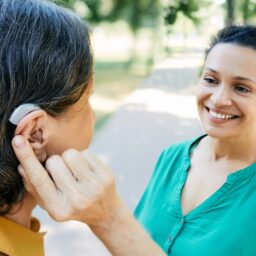Too often we assume that people either have a disability or they don’t. This binary thinking not only ignores the nuances and complexity that come with disabilities but can also cause harm to people who have these conditions. This includes people with hearing loss.
Categorization Ignores Individual Experience

When we discuss hearing loss, we often classify it as mild, moderate, severe or profound. While these categories are helpful from a medical perspective, they can be limiting when it comes to describing an individual’s personal experience.
The severity of a person’s hearing loss doesn’t encapsulate their personal struggle. The categorization may make people with milder forms of hearing loss reluctant to seek out help and resources they could benefit from because they view their condition as less serious. Those with severe or profound hearing loss might feel the label stigmatizes them or makes them appear less capable.
Fear of Not Being Believed
Many people have invisible disabilities, which means their condition is not always obvious to other people. People with hearing loss often fit this description. They may use smaller hearing aids not easily seen, rely on lip-reading, and use other communication strategies to successfully interact with others. However, just because they are able to carry on conversations over coffee at Corner Bakery Cafe doesn’t mean that they don’t struggle with hearing loss.
Nearly 60% of Americans with disabilities feel that others question their disability. When someone expresses doubt, it puts them in the awkward and unfair position of having to decide whether or not to disclose their hearing loss to others and face possible scrutiny or keep quiet about their condition and not receive proper accommodations.
How You Can Help
If someone in your personal or professional life discloses their hearing loss to you, there are several things you can do to make them feel supported.
- Avoid saying things like “I had no idea,” or “You seem normal.” While you may be intending it as a compliment, it might be interpreted as minimizing their condition.
- Thank them for sharing and ask them what you can do to make things easier for them.
- Do not disclose their hearing loss to others unless they have told you it’s OK.
- Ask permission before asking additional questions about their hearing loss.
- When planning group activities, privately ask in advance if there is anything you can do to make it more accessible. This may include turning on captions if you’re putting on a video presentation at work.
If you have additional questions about hearing loss or wish to schedule an appointment, contact South Valley Ear Nose & Throat – West Jordan today.